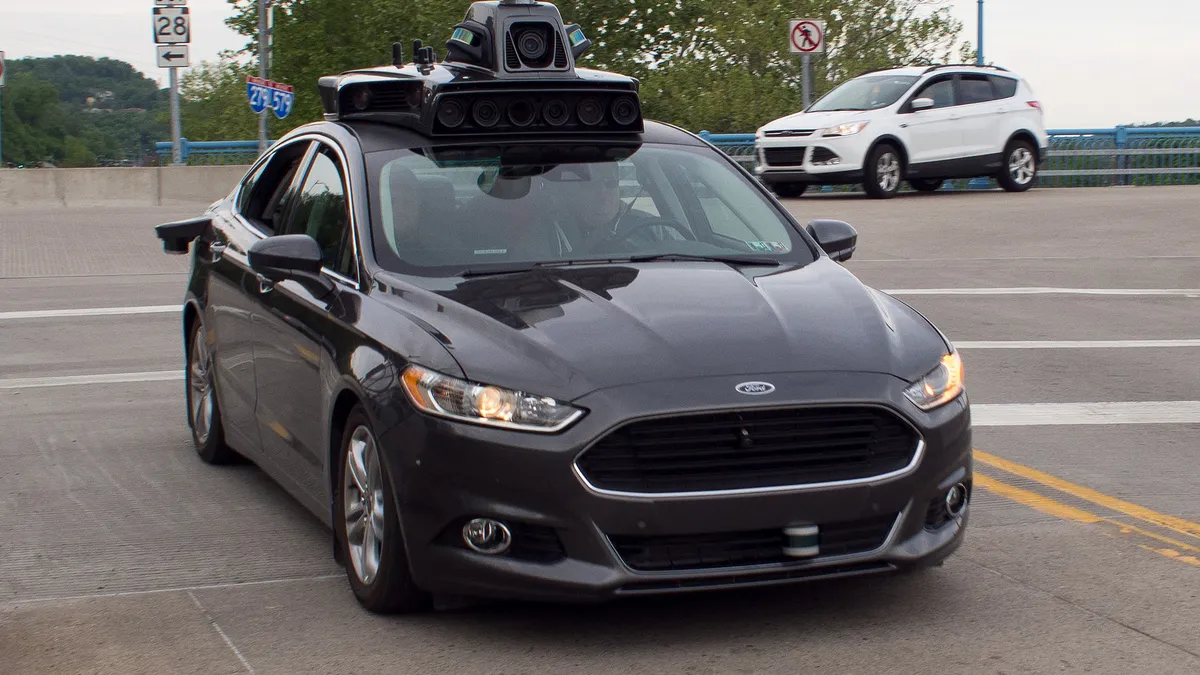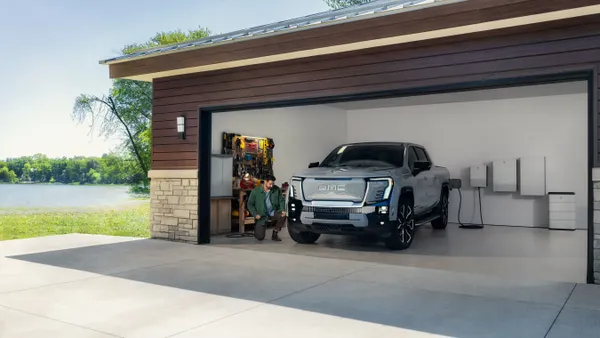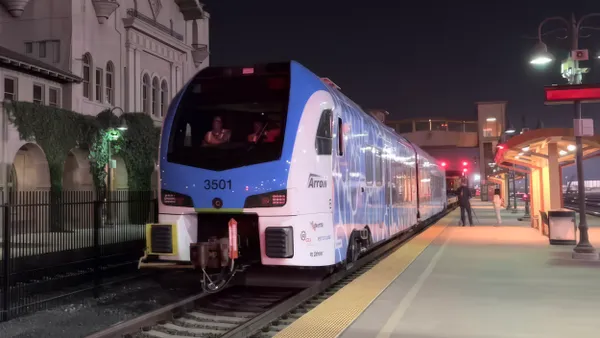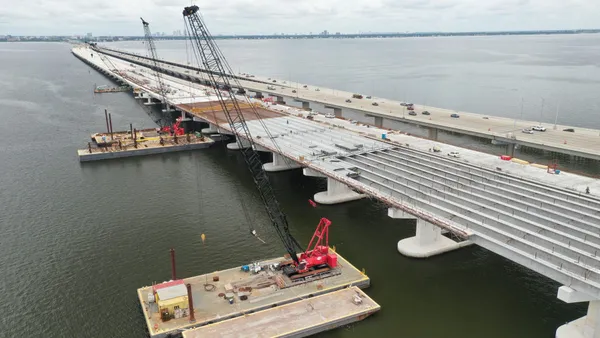Dive Brief:
- The National League of Cities, a nonprofit group of municipal leagues, last week released a guide on autonomous vehicles (AVs) for state and local planners.
- The guide, “Autonomous Vehicles: A Policy Preparation Guide,” provides a rundown of different types of autonomous vehicles, public policy considerations, recommendations and other topics of interests to cities and companies dealing with the new technology.
- The guide recommends cities start planning now for AV growth, monitoring state and federal policy developments, communicating with key companies and residents, and preparing their building data and computing capacity to capitalize on new mobility opportunities.
Dive Insight:
Cities around the world are at different stages of AV deployment. Cities from Singapore to Pittsburgh already testing autonomous vehicles, California is planning to relax their rules for testing and the U.K. is slated to bring testing to their roadways in the next few years.
All are looking for best practices when it comes to AV policies, some of which are outlined in the new NLC guide.
The National League of Cities said in a statement that their guide is a city-focused addition to what was laid out in U.S. Department of Transportation’s 2016 Federal Automated Vehicles Policy. The federal guide focuses on safety, state versus federal responsibility and current and future regulatory rules.
Much of the guide is recommendations and not new rules or laws around autonomous vehicles. In an op-ed published around its release, President Obama wrote that governments often get the laws wrong around changing technology, so this policy was meant to be "flexible and designed to evolve with new advances."
The NLC guide urges cities to start planning infrastructure upgrades now regardless of where they are in implementing trials, consider their own safety and privacy needs, track and contribute to state and federal AV policies and assess existing laws and municipal codes to see if they are ready for driverless car technology.
"The pace at which AV technology has developed and deployed has surpassed expectations and predictions," the guide notes. "Cities should begin planning for this and holding public workshops with constituents now, with the objective of seeking stakeholder and constituent engagement and education in what is certain to be a complex policy process.










